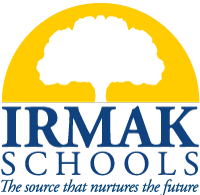Play-based learning is a form of early childhood education based on child-led and open-ended play. According to the National Association for the Education of Young Children (NAEYC), “The urge to play comes from a natural desire to understand the world.” Play-based learning helps children develop social skills, motivation to learn, language and math skills. Taking initiative, focused attention, and curiosity about the world are all part of the game. For this reason, suitable environments are created for children to learn through play in our kindergarten and are supported by teacher observation.
At Irmak Kindergarten, the Primary Years Program (PYP) is implemented full-time, enriched with a play-based approach. We have a loving and trusting environment, in which the solid foundations of individuals who will make a difference in the future are laid with our academic and social-emotional development program. In early childhood, rapid developments are recorded in physical, emotional, social and cognitive areas. Learning environments are a play-based design to support children cognitively, socially, emotionally and physically. In this way, connections are established with key areas of development by developing students’ approaches to learning. Social development is also shaped through play in this early childhood period, as students are naturally prone to explore, play and make connections between themselves, others, and their entire environment.


